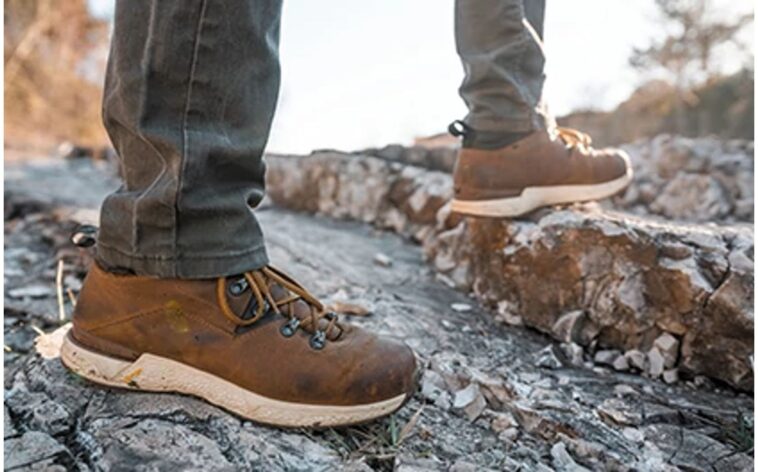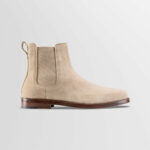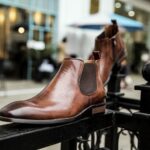As a worker, you know how important it is to have the right gear to get the job done. One of the most critical pieces of equipment you can invest in is a good pair of work boots. Not only do they protect your feet and keep you comfortable during long hours on the job, but they can also help prevent injuries. However, with so many options on the market, it can be tough to know where to start when it comes to choosing the perfect pair of work boots for your budget. In this article, we’ll walk you through everything you need to know to make an informed decision.
Why Choosing the Right Work Boots Matters
When you’re on the job, your feet are your foundation. Whether you’re working in construction, manufacturing, or another industry that requires physical labor, you need a pair of boots that can keep up with the demands of the job. Not only do the right boots protect your feet from injury, but they can also help prevent slips, falls, and other accidents that can lead to lost time and lost wages.
Considerations When Choosing Work Boots
When shopping for work boots, there are a few critical features you should look for. Consider the following:
Safety Features
Toe Protection
One of the most important safety features of work boots is toe protection. Look for boots with steel, composite, or aluminum toe caps that meet industry standards for impact and compression resistance.
Slip-Resistance
If you work in an industry where you’re exposed to wet or slippery surfaces, slip-resistant soles are a must-have. Look for boots with outsoles made of slip-resistant materials like rubber or polyurethane.
Electrical Hazard Protection
If you work in an industry where you’re exposed to live wires or other electrical hazards, boots with electrical hazard protection are a must-have. Look for boots with soles and heels that are electrically insulated and meet industry standards for protection.
Puncture Resistance
If you work in an industry where you’re exposed to sharp objects like nails or glass, boots with puncture-resistant soles are a must-have. Look for boots with soles made of materials like Kevlar or steel that can protect your feet from puncture wounds.
Comfort Features
Arch Support
When you’re on your feet all day, good arch support is critical. Look for boots with insoles that provide arch support to help prevent foot fatigue and discomfort.
Breathability
If you work in a hot environment, breathability is essential. Look for boots made with materials like mesh or Gore-Tex that allow air to circulate around your feet and help prevent moisture buildup.
Insulation
If you work in a cold environment, insulation is critical. Look for boots with insulation that’s appropriate for your working conditions to help keep your feet warm.
Weight
The weight of your work boots can also affect your comfort and performance on the job. Look for boots that are lightweight and won’t weigh you down during long hours of work.
Durability and Longevity
Investing in a quality pair of work boots is a smart long-term investment. Look for boots made with durable materials that can withstand the wear and tear of daily use. Check for features like reinforced stitching and abrasion-resistant materials to ensure your boots will last.
The Importance of Proper Fit
When it comes to work boots, proper fit is crucial. Ill-fitting boots can cause discomfort and increase your risk of injury. Look for boots that fit snugly but not too tightly, with enough room in the toe box to wiggle your toes. Consider trying on boots at the end of the day when your feet are slightly swollen to ensure a proper fit.
Finding the Right Work Boots for Your Budget
Choosing the perfect pair of work boots doesn’t have to break the bank. Here are a few tips for finding work boots that fit your budget:
Research and Compare Brands
Before making a purchase, do your research. Look for reviews and ratings from other workers in your industry to get an idea of which brands and models are the most reliable and cost-effective.
Take Advantage of Sales and Discounts
Many retailers offer sales and discounts on work boots throughout the year. Keep an eye out for promotions and coupons to save money on your purchase.
Consider Buying Used or Refurbished Boots
If you’re on a tight budget, consider buying used or refurbished work boots. You can often find lightly used boots for a fraction of the cost of new boots. Just make sure to inspect them carefully for any signs of wear or damage before making a purchase.
Invest in Quality and Durability
While it may be tempting to go for the cheapest option, investing in a quality pair of work boots can save you money in the long run. Look for boots made with high-quality materials that can withstand the demands of your job.
Conclusion
When it comes to choosing the perfect pair of work boots for your budget, there are several critical factors to consider. Safety features like toe protection, slip-resistance, electrical hazard protection, and puncture resistance should be at the top of your list. Comfort features like arch support, breathability, insulation, and weight can also affect your performance on the job. Finally, investing in a quality pair of boots that fit properly and are made with durable materials can help prevent injuries and save you money in the long run.
FAQ
What are the most important safety features to look for in work boots?
The most critical safety features to look for in work boots include toe protection, slip resistance, electrical hazard protection, and puncture resistance. These features can help prevent injuries and protect you from common workplace hazards.
Can I find good quality work boots on a tight budget?
Yes, you can find good quality work boots on a tight budget. Do your research, compare brands, and look for sales and discounts to save money on your purchase. You can also consider buying used or refurbished boots, as long as you inspect them carefully for any signs of wear or damage.
How do I know if my work boots fit properly?
Proper fit is crucial when it comes to work boots. Look for boots that fit snugly but not too tightly, with enough room in the toe box to wiggle your toes. Consider trying on boots at the end of the day when your feet are slightly swollen to ensure a proper fit. You can also consult with a professional shoe fitter or a sales associate at a store for assistance.
Can I wear the same boots for different jobs?
It depends on the requirements of each job. If the jobs have similar safety and comfort requirements, then you may be able to wear the same boots. However, if the jobs have different safety requirements, you may need to invest in different types of boots for each job.
How often should I replace my work boots?
It’s essential to replace your work boots when they show signs of wear or damage. On average, work boots should be replaced every 6 to 12 months, depending on how often you wear them and the conditions of your workplace. Inspect your boots regularly and replace them if you notice any signs of wear or damage, such as worn-out soles or holes in the uppers.






